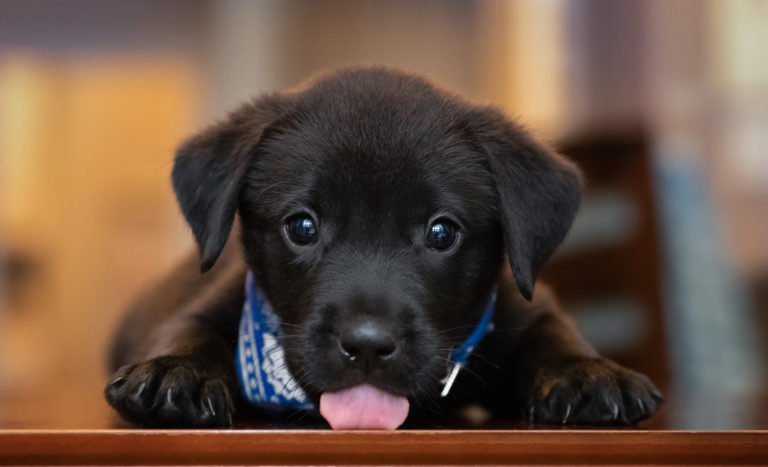Times have changed since I brought home my very first puppy. I still remember how excited I was holding the squiggly bundle of fur in my arms as he looked up at me in total adoration.
I wasn’t prepared for a puppy. I was young, I barely had the money for my own place, but I knew we would do just fine. Life would have been a lot easier if I knew then what I know now!
Here are some things I would tell my younger self to prepare for that first puppy.
Getting Approval
You might be surprised how many people run out to bring a new dog into their home only to learn that dogs are not allowed either by HOA laws, rental agreements and even homeowner insurance policies. Whether you rent or own, be sure you have approval for pets. Also check for breed bans and/or breed restrictions – they are far more common than you think. You can often add a rider to your policy for a minimum charge, but at the minimum you should have all your records in place.
Puppy Proof Your Home
Before you bring home a new puppy, it’s important to puppy proof your home. Is it absolutely necessary? That’s negotiable. But I will tell you that if you plan properly, you will save yourself a lot of money in veterinarian bills and save your puppy a lot of stress. Puppies are curious and they explore in much the same way a human toddler explores – by putting their mouth on everything. This can include electrical cords, remote controls, walls, hands, shoes, your bed and anything that is within reach. You may also need to consider adding gates or a doggy door for easy indoor/outdoor access. Remember that any outdoor access should lead into a safe, enclosed area to prevent predators from grabbing your small dog.
Puppy Proof Your Yard
Don’t bring home your new dog without making sure your yard is dog proofed. Walk your fence line and find any potential escape areas. Check your gardens for any potential hazardous or poisonous plants that may harm your puppy. If you have a pool, make sure there is a way for your dog to climb out safely – you may even consider teaching your puppy how to swim and where to get out of the pool. If you have a backyard with a gate, make sure you padlock the gate and remind pool cleaners or landscapers that you have a new dog on the prowl!
Establish Ground Rules
If you have children or other pets in the home, it’s important to establish your ground rules. Puppies need a lot of sleep during the day. Puppies may also nip harder than they intend to, potentially angering or hurting others, so it is important to supervise your puppy when it interacts with young children and other pets.
Have the Basic Supplies Ready
Starting out is fairly easy. You’ll need to have some basics including:
-
- Food
- Water
- Bowls
- Leash
- Collar
- Harness
- ID tags
Other useful items to add to your new puppy checklist include:
-
- House-Training Pads
- Crates
- Play Pen
- Beds
- Brush or Comb
- Chew Toys
- Stuffed Toys
- Treats
Veterinarians Are Required—Budget Accordingly
Choose a veterinarian that you like and trust. You’ll have a long relationship with your vet, and it’s important that you and your dog like them. You’re not locked in forever, but it’s good to have someone you can call on the weekend who will get back to you. It is also a good idea to know your vet’s hours and have a back up 24-hour office in mind in case of any emergencies.
Your puppy will need vaccination and check ups, along with physicals and dentals. They will need heartworm medication that requires checkups and routine flea and tick (and possibly worm) medication. You’ll need to clip their nails, groom them and make sure they are progressing properly. If you don’t want to get insurance, you need to plan on a savings account. Responsible pet care is not an inexpensive prospect!
Start Training Immediately
Trust me on this. You’ll save yourself a lot of time and aggravation if you focus on training early. Not only does it help you bond with your dog, it helps your dog become a confident, contributing member of your home.
Enroll your puppy in puppy training and socialization classes. Enlist the help of a full-time trainer for private lessons if you feel that your puppy needs some special attention away from other dogs.
Your family does chores; your dogs want to do the same. Food is an excellent reward, but figure out what your puppy’s total calories should be and make the rewards a part of their diet. It’s better for your dog’s digestive system to eat small meals throughout the day and this will also help them avoid getting bored with their food.
Find a Reliable, Licensed, Bonded Pet Sitter
Again, this is an important part of having a dog. You won’t be able to have your dog with you all the time, and things can happen that may impact your care. Having a reliable pet sitter on call who knows your pets is an invaluable resource.






